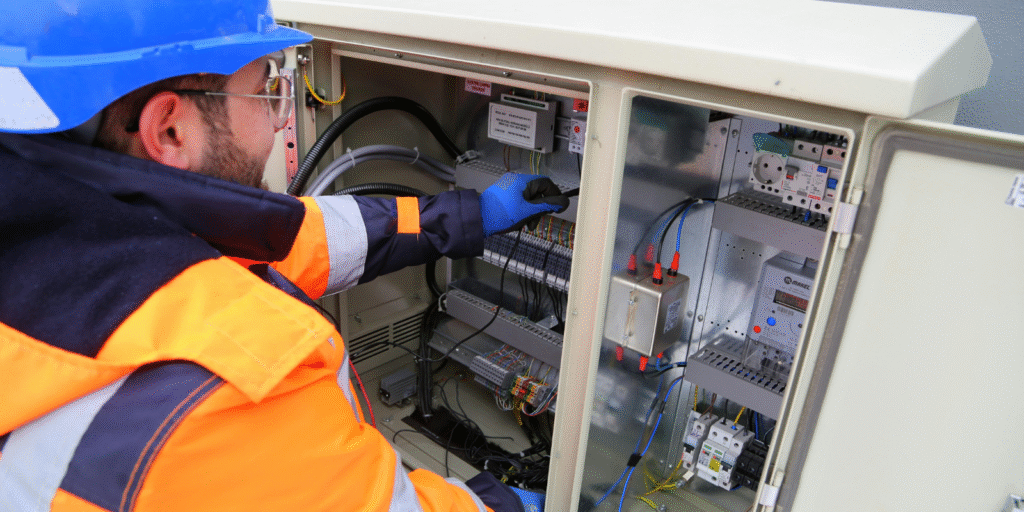Behind every successful business lies a reliable workforce. Among the most crucial contributors to modern industries are electrical and mechanical staff, who keep operations running seamlessly. Whether it’s wiring a commercial building, maintaining machinery in a factory, or troubleshooting HVAC systems in hospitals, these professionals ensure that businesses stay productive, safe, and competitive.
As industries grow more technology-driven, the demand for skilled technical staff continues to rise. In this blog, we’ll explore the vital role electrical and mechanical staff play in powering industries, the challenges businesses face in hiring them, and why partnering with professional staff providers is key to long-term success.

1. The Backbone of Industrial Operations
Electrical and mechanical staff are the unsung heroes of industries. Their responsibilities go far beyond routine repairs—they are essential to operational continuity.
- Electrical Staff: Handle power distribution, installations, equipment testing, troubleshooting, and preventive maintenance.
- Mechanical Staff: Operate, repair, and maintain machines, assembly lines, HVAC systems, plumbing, and heavy equipment.
Without them, businesses would face downtime, safety risks, and productivity losses. Their expertise ensures industries function smoothly around the clock.
2. Industries That Depend on Electrical & Mechanical Staff
Manufacturing
Factories rely on technicians to run production lines, maintain machinery, and avoid costly breakdowns.
Construction
Every project requires electricians for wiring and lighting and mechanics for plumbing, HVAC, and heavy equipment.
Facility Management
IT parks, malls, airports, and hospitals depend on 24/7 technical staff for seamless operations.
Energy & Utilities
Power plants, renewable energy projects, and utilities require highly skilled staff for maintenance and safety.
Residential & Commercial Real Estate
Housing complexes and offices rely on electricians and mechanical staff for regular upkeep of essential systems.
This wide application highlights how critical these professionals are across industries.
3. The Growing Challenges in Hiring Skilled Staff
While the need for technical staff is increasing, businesses face multiple hiring challenges:
- Skill Shortages: Rapidly evolving technologies demand updated knowledge, which many candidates lack.
- High Turnover Rates: Skilled professionals often switch jobs for better opportunities.
- Training Requirements: Continuous training is necessary to meet safety and compliance standards.
- Regulatory Compliance: Businesses must ensure staff certifications and licenses are valid.
- Time-Consuming Recruitment: Screening and verifying technical staff can delay urgent projects.
These challenges make outsourcing to staff providers an effective solution.
4. Benefits of Partnering with Electrical & Mechanical Staff Providers
a) Access to Qualified Talent
Providers maintain a pool of certified and pre-screened candidates, ensuring businesses get the right talent quickly.
b) Cost & Time Savings
Instead of investing months in recruitment, companies save time and resources by leveraging staffing solutions.
c) Flexibility in Hiring
Whether for short-term projects or permanent roles, staffing providers offer contract, temporary, and full-time solutions.
d) Compliance & Safety
Professional providers ensure staff meet legal, safety, and industry standards, reducing risks for employers.
e) Reliability & Backup
If an employee exits unexpectedly, providers offer immediate replacements to avoid disruption.
By outsourcing, companies can focus on core operations while ensuring technical needs are handled by experts.
5. The Role of Electrical & Mechanical Staff in Business Success
A company’s success depends on its ability to run smoothly, reduce downtime, and maintain efficiency. Technical staff directly contribute to this by:
- Preventing Downtime: Through preventive maintenance and quick troubleshooting.
- Ensuring Safety: Reducing workplace hazards with proper installations and checks.
- Improving Productivity: Keeping machines, utilities, and facilities in top condition.
- Supporting Growth: Enabling businesses to scale operations without technical disruptions.
- Enhancing Customer Experience: Reliable facilities and services create trust with clients and customers.
In short, they are the foundation of operational excellence.
6. Technology and the Future of Technical Staffing
Industries are evolving with automation, digitization, and renewable energy, and so are staffing needs.
- Automation & Robotics: Staff must be trained in advanced manufacturing technologies.
- Green Energy: Electricians skilled in solar and wind systems are increasingly in demand.
- Smart Buildings: Facilities require technicians familiar with IoT-enabled systems.
- Remote Monitoring: Technicians are now trained to handle AI and cloud-based monitoring tools.
Staff providers are equipping candidates with these future-ready skills, ensuring businesses stay competitive.
7. Case Example: How Staff Providers Transform Businesses
A leading construction firm needed 50 electricians and 30 mechanical staff within two weeks for a large commercial project. Instead of spending months recruiting, they partnered with a staffing provider.
Results:
- Workforce was deployed in 10 days.
- Compliance and safety checks were pre-completed.
- The project was completed ahead of schedule.
This shows how staff providers bridge skill gaps efficiently, supporting business growth.
Conclusion
Electrical and mechanical staff are more than just support workers—they are the power source of industries. From construction and manufacturing to facility management and energy, their contribution ensures smooth operations, safety, and long-term growth.
Yet, with hiring challenges increasing, businesses must rethink their approach. Partnering with professional electrical and mechanical staff providers gives organizations the edge they need—qualified talent, compliance assurance, and flexibility.
In today’s competitive economy, success depends not only on strategies and technologies but also on the skilled hands and minds that keep systems running. By investing in the right workforce solutions, businesses can power their growth, enhance reliability, and secure a future-ready foundation.




